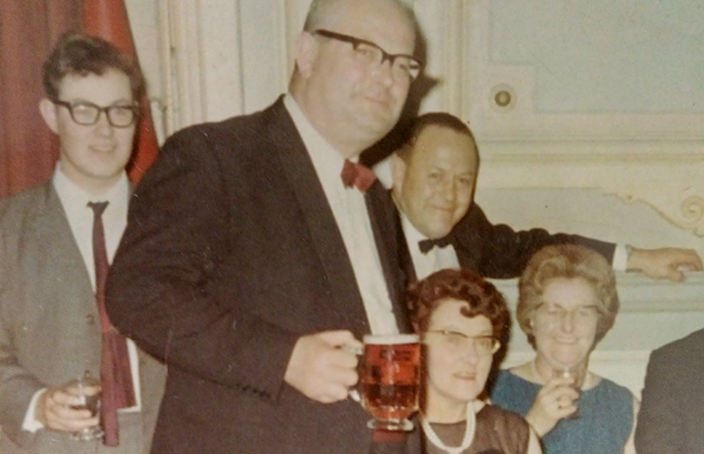“My mother told me was that I was full of sugar and the machines were off the scale.”
Peter Tizzard (pictured, left) had an extraordinary arrival into the world, Born in 1951, he was delivered at Mason Hill Hospital in Bromley, Kent, and would go on to be known as a “miracle baby”.
Peter was named after Peter Greening, who assisted with his delivery, which was performed by Robert Fowler, a surgeon who owned a surgery in Harley Street, London.
According to Peter, he was the first successful Caesarean section birth to a woman with type 1 diabetes.
‘Miracle baby’
Peter’s mother, Dorothy, was diagnosed with type 1 diabetes aged 18 in 1935. Prior to Peter’s birth she had experienced miscarriages, a common occurrence affecting people with type 1 diabetes during this time.
When Dorothy became pregnant with Peter, she was introduced to Mr Fowler by family friend Mr Greening, an eminent cancer specialist who also owned a Harley Street surgery.
Mr Fowler was researching C-section births for people with diabetes, and he took Dorothy under his care.
Dorothy did not want any media involved at the time of Peter’s birth. “She was glad that she could have helped as everything was being kept under wraps,” Peter said.
But the significance of Peter’s arrival was not lost upon Greening and Fowler. During a visit to Mr Fowler’s Harley Street surgery in the early 1960s, Peter said, “I was greeted with ‘ah my miracle baby.’”
Peter’s admiration of Mr Fowler and Mr Greening remains to this day. “It’s a pity there is no blue plaque commemorating this event naming Mr Fowler and Peter Greening,” he said.
Significance
Peter is now aged 67. He did not develop type 1 diabetes, and while he has type 2 diabetes – which he says is well-controlled – his children do not have signs of type 1 diabetes.
To this day, people with type 1 diabetes have an increased risk of complications during pregnancy, but eating healthily can significantly lower this risk.
Moreover, the technological developments of recent years mean that people with diabetes who are pregnant have greater treatment and care options. Earlier this year, the NHS pledged that every pregnant woman with type 1 diabetes will be offered continuous glucose monitoring (CGM) by 2020/21.
As technology advances, a story such as Peter’s become even more significant.
Seventy years ago technology was far more minimal, and Peter’s birth was a testament to some pioneering research by doctors who likely had a major impact in the development of better health in pregnancy and diabetes.



